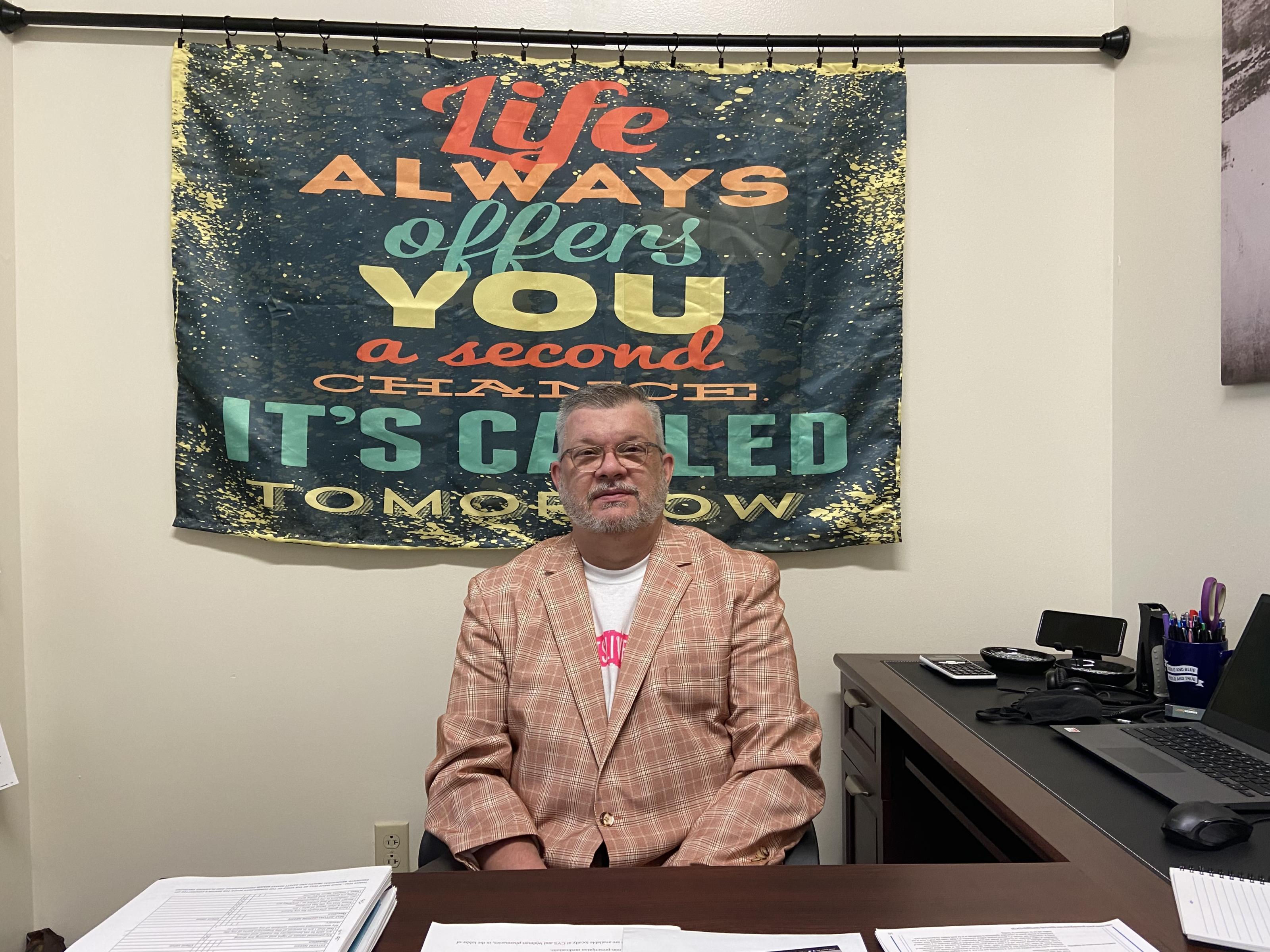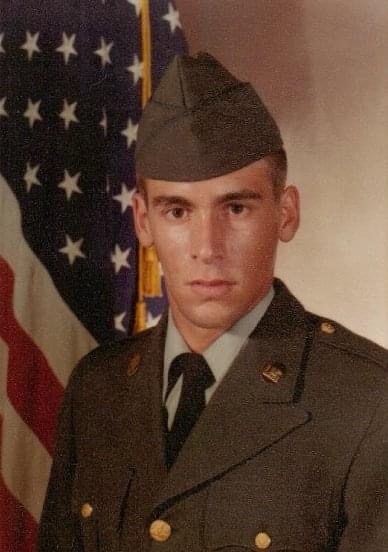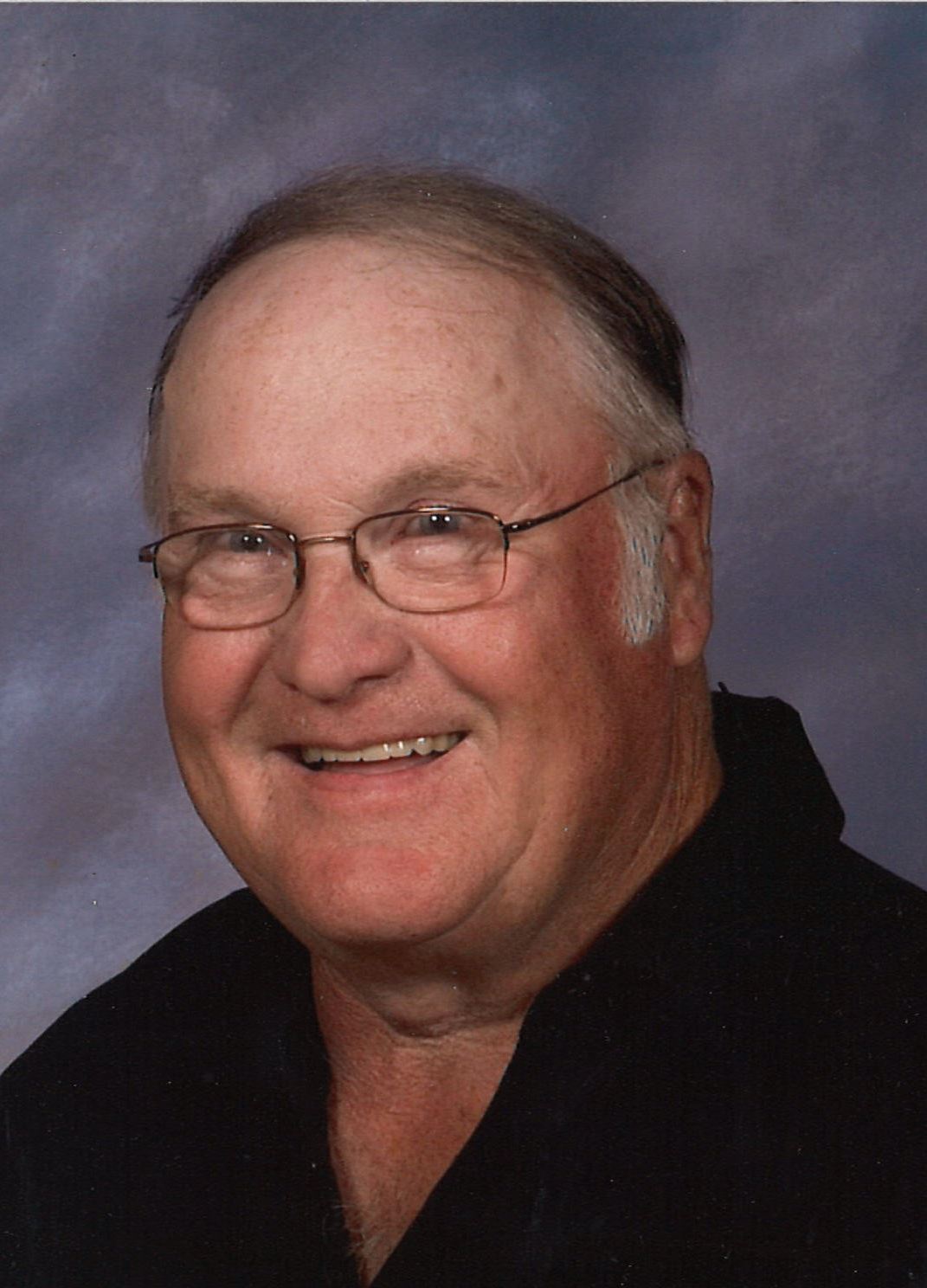The City of Shelbyville’s new Behavioral Health & Justice Equity Director knows of what he speaks.
Michael Daniels, a 1983 Shelbyville High School graduate, has returned home to help his hometown better improve mental health awareness, drug addiction and homelessness.
“My position here is to take a look specifically at folks in those categories and come up with what are the system level solutions,” said Daniels after making a presentation Monday morning to the Common Council outlining his first initiative. “What does diversion look like and divert to where? What does first response look like? Is it always appropriate to dispatch a police officer? Are there cases where a co-responder model where we are dispatching a peer support person and perhaps a social worker or medical person might make more sense?
“What is the solution to the homeless folks living on the land but also the much larger number of folks who are housing unstable and couch surfing and are one argument with their friend away from being homeless?”
Residents of Shelbyville and Shelby County have been asking for more services for years. Daniels believes he can find a way to improve life’s situations for those truly in need.
“There are far too many folks who end up where jail is the only place we have for them to go,” said Daniels, who has a second floor office at City Hall, 44 W. Washington St., in downtown Shelbyville. “We should not be criminalizing mental health disorders, addictions and homelessness, but sometimes the only choice we have is to take people and the jail is open (24 hours a day, seven days a week).”
Daniels grew up in Shelbyville, graduated from Franklin College, continued his education in Missouri before working in Indianapolis, Philadelphia, Los Angeles and San Diego before an extended stint in Columbus, Ohio.
Daniels moved back to Shelbyville in March and officially started his new role this month. He announced his department’s first harm reduction initiative Wednesday – an outreach to collect 100 pounds of unused, expired or unnecessary prescription and non-prescription drugs in 100 days.

Through the end of the year, the department is partnering with Shelby County Coroner Brad Rund to take back 93,331 pills and tablets. That five-digit number reflects the number of American people who died in 2020 from drug-related overdoses.
Take back boxes are available locally at CVS and Walmart pharmacies, in the lobby of the Shelby County Sheriff’s Department and the Shelbyville Police Department, as well as at the Coroner’s office. MedWorks pharmacy also will be installing a take back box.
In addition, Daniels has partnered with Murphy Parks Funeral Services to collect medications from deceased loved ones and Blue Ridge Christian Church and Shelbyville Trinity UMC will provide information and mail-in take back bags at their sites.
Shelby Senior Services, Inc. also is releasing information to assist with the initiative.
Daniels’ career experience is invaluable to the city’s focus on helping its citizens, but his life experience – he is now is his 18th year of recovery from a methamphetamine addiction – will help him more closely relate to those in need.
“My role is to look at what are the best practices for communities like us nationwide,” said Daniels. “What works in major urban corridors may not work here, although I think there are some things we can learn from those efforts. And asking the folks who would use those services.
“I don’t want to build a homeless shelter if nobody who is homeless wants to go to a shelter. The solution might be in supportive housing. The solution might be in some sort of working with landlords and providing some sort of backstop for landlords that would make them feel better about renting to someone who has marginal employment. Or some cities have done tiny homes or trailer communities. The question is asking folks who are actually in that situation what are the solutions you need as well as talking to the folks who are in active addiction.”
Daniels visited the Shelby County Jail last week to collect data.
“I did a survey of every single person that was in the jail last week. That will get us some data about the prevalence of drug use and which drugs, and the prevalence of mental health and past trauma experiences,” he said. “What are the kinds of things we need? And what is the community response to this in terms of not just bricks and mortar, but how do we actively engage these folks rather than marginalize them?
“How do we engage them back into the community where they feel they are a part of the city? Where they feel they can give back to the community. That keeps folks in recovery a lot longer, if they have a purpose and a sense of belonging.”
Daniels is clear that he supports local law officials and the work they do. His goal is to provide more options than just a jail cell.
“We are in no way suggesting that we should just empty out the jail,” he said. “We are in no way suggesting that what the prosecutor and courts are doing is in any way incorrect. We are supportive of the work that they do. It’s my job to keep people from getting there in the first place and offering them the appropriate alternative.”
Building a homeless shelter is not necessarily the answer, according to Daniels. Not everyone wants assistance. But he is aware that there are very limited options for those finally ready to end a vicious cycle.
“There is no 24-hour crisis service,” he explained. “If the crisis you are having is at 3:30 p.m. on a Tuesday, maybe you can get in to see somebody at one of the facilities that is open 8-to-6. But that’s not when crises happen. They happen at 2:30 in the morning on a Saturday … in the rain. Right now, the only two places that are open are the emergency room and the jail. So what’s the solution to that?”
For more information, contact Michael Daniels at 317-398-6624 or email him at mdaniels@cityofshelbyvillein.com.






